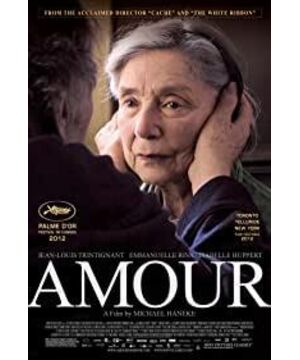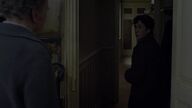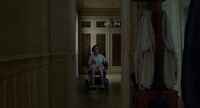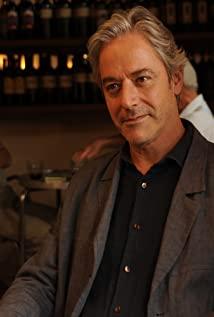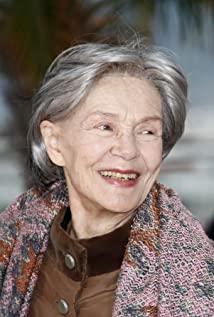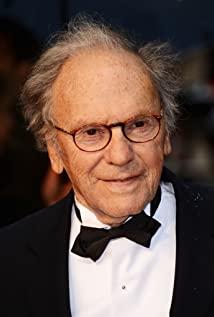There are thousands of ways to express love, but the three movies have preset an extreme environment for us: the end is coming. As we approach the end of life, we have come to the entrance of despair. Can people still have the ability to love at this time? In a painful and depressed state of mind, when the coat of civilization and reason falls off, is it unforgettable love or unprovoked hatred inside? The three movies have given us seemingly bright answers, but the stories behind the answers are more intriguing. The prisoner in "Caesar Must Die" had to continue to face the fact that his life was imprisoned while reaping the freedom of the soul. Gang Zuo in "Shengshang" bid farewell to the degenerate and inhumane lifestyle from "maternal love". When he started to rebirth, he had a foreboding that he was about to lose this love. The elderly couple in "Love", when the husband took care of the paralyzed wife, we saw a deep love, but when he suddenly killed his wife, we got the information and it became complicated, and it was so complicated that it was unacceptable for a while. And understanding.
As a lonely individual, human beings choose to share their most intimate emotions with others in order to escape loneliness. These people can be partners, family members, God, or art. Over time, dependence has formed. But often in the process of leading to this dependence, doubt and boredom will destroy this feeling in advance. It seems that the couple in "Love", Anna and Georges, their feelings are even more precious. Georges is selfish. He is unwilling to share his love for Anna with others. After Anna was seriously ill, he rejected other people's visits, even his own daughter. He only wanted Anna to complete the last journey of life in his company. In this enclosed space, even a pigeon that accidentally visits cannot be tolerated. Haneke portrays us a simple but extreme love, which is warm and depressing, but happiness but sadness. This is the world of two people, hiding the restlessness and anxiety in the ordinary. The same is true for Anna, she doesn't want to stay in the hospital, and she doesn't want others to talk about her condition. Haneke pointed the camera at the staring side many times in the film, and the audience could strongly feel the gaze projected from the other party, the gaze full of love. "Love" is not a tribute to love, but a gaze on life. When life is irresistibly aging and death, can we face it calmly? This is also an extreme test of love, testing the limit of human endurance. We must find our place in the balance of effort and gain. In the film, Georges has hallucinations many times. In the leaky corridor, he is tightly bound by an arm, and this is exactly what he said to Anna, "You don't need to feel guilty, this kind of thing may happen to me." Later. People may not be able to give all of themselves to others, but we are always eager for rewards while giving. In the case of only giving but no rewards, can our love continue to move forward? Haneke's films always explore the impact of some unexpected sudden intervention on real life, whether it is a piano teacher who falls in love with his student, or a poor man who encounters a perverted thug. In the face of great changes in life and feelings, people always deal with them from one extreme to the other. It’s hard to say whether the emotional expression in "Love" is normal or abnormal, but all this must happen in a natural state. From careful care to suffocating the lover with a pillow to the calmness of blocking the room, it is George. The audience cannot judge from the protagonist’s words. We are just waiting, waiting for the coming of death, waiting for the end of the movie.
Haneke is a director who does not easily express emotions in movies, but the two "Returns of the Dead" in "Love" are full of emotions. Is this Hanek’s new attempt? At least on a certain level, he succeeded. The audience will not turn a blind eye to the emotion that is ready to come out. On the other hand, the full emotion is weakening the "natural state" in the movie. The closer we are to the characters, the closer we are to ourselves. Far away, the more preset information we get, the more we lose control of the movie’s meaning space. Hanek knows this well, so after the frequent use of close-ups, Zhong Yuan Jing began to return to the movie, and we began to feel more and more unfamiliar with Georges.
We saw love, but we also felt death. Love should not be connected with death. But this is the fact. Anna’s death is a relief for herself and Georges. This behavior is difficult to use rationality or sensibility. To judge, it is also difficult for us to analyze the "meaning" from such a movie. Because of the tragedy, the protagonist made a choice. That's it? Since there are tens of thousands of ways to express love, "love you so much that it kills you" should also be one of them. Too many "whys" are really superfluous for Haneke's films. He loves her, she loves him, she is sick, he kills her, and then the movie ends. This is the life they want, but can you say that this is not a sincere expression of love?
View more about Amour reviews


